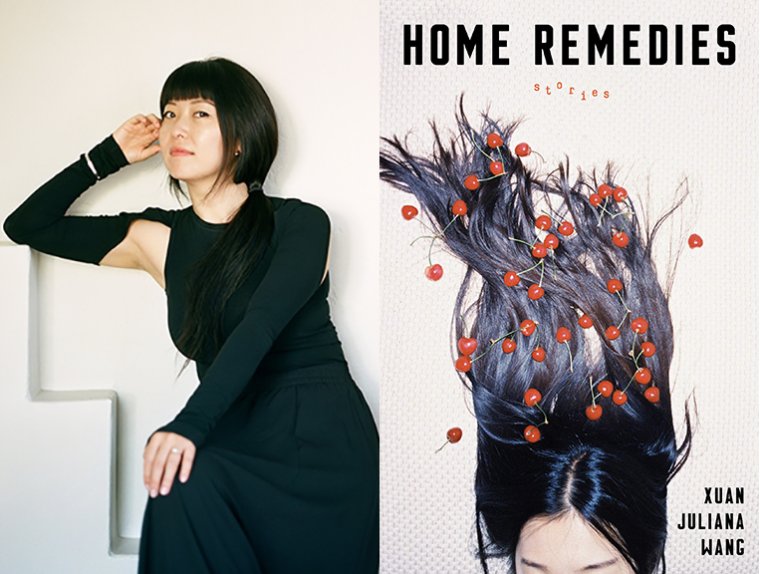This week’s installment of Ten Questions features Xuan Juliana Wang, whose debut story collection, Home Remedies, is out today from Hogarth. In a dozen electrified stories, Wang captures the unheard voices of a new generation of Chinese youth via characters that are navigating their cultural heritage and the chaos and uncertainty of contemporary life, from a pair of synchronized divers at the Beijing Olympics on the verge of self-discovery to a young student in Paris who discovers the life-changing possibilities of a new wardrobe. As Justin Torres writes, Wang “is singing an incredibly complex song of hybridity and heart.” Xuan Juliana Wang was born in Heilongjiang, China, and grew up in Los Angeles. She was a Wallace Stegner Fellow at Stanford University and earned her MFA from Columbia University. She has received fellowships and awards from Yaddo, the MacDowell Colony, the Bread Loaf Writers’ Conference, Cite des Arts International, the Lower Manhattan Cultural Council, New York Foundation for the Arts, and the Elizabeth George Foundation. She is a fiction editor at Fence and teaches at UCLA.

Xuan Juliana Wang, author of the story collection Home Remedies. (Credit: Ye Rin Mok)
1. How long did it take you to write the stories in Home Remedies?
All of my twenties and the early part of my thirties.
2. What was the most challenging thing about writing the book?
I would have to say the loneliness of falling out of step with society. When I’m out celebrating a friend who has just made a huge stride in their career, someone would ask me, “Hey how’s that book coming along?” Then having to tell them that I have a desk in an ex-FBI warehouse and I’ll be sitting there in the foreseeable future, occasionally looking out the window, trying to make imaginary people behave themselves.
3. Where, when, and how often do you write?
I keep a regular journal where I describe interesting things I’d seen or heard the day before as well as random plot ideas. That’s something I like to do every day, preferably first thing in the morning or right before bed. My ideal writing environment is a semi-public place, like a shared office, or a library as long as I can avoid making eye-contact with people around me. When I’m really getting going on an idea I am capable of sitting for eight hours a day, many days in a row. I was forced to play piano as a child so I have no trouble forcing myself to do anything.
4. What was the most unexpected thing about the publication process?
It made me feel a deep kinship with anyone who has ever published a book. I want to clutch them, look into their eyes and say, “I understand now.”
5. What are you reading right now?
King of the Mississippi by Mike Freedman. I just picked up Heads of the Colored People by Nafissa Thompson-Spires and it’s great! I’m putting off finishing The Unpassing by Chia Chia Lin because it’s so gorgeously written I am savoring it.
6. Which author, in your opinion, deserves wider recognition?
Wang Shuo. He’s like the Chinese Chuck Palahniuk. I wish he could be translated more and better.
7. What is one thing you’d change about the literary community and/or the publishing business?
I wish publishers would open up their own bookstores, or sell books in unexpected places, so people could interact with books in-person. There isn’t a single bookstore within a fifteen-mile radius of the city where I grew up in LA.
8. What is the biggest impediment to your writing life?
Health insurance.
9. Would you recommend writers pursue an MFA?
Yes. But choose wisely.
10. What’s the best piece of writing advice you’ve ever heard?
Victor Lavalle gave us a lot of practical advice in his workshop. The one I use the most often is: Take the best part of your story and move it to first page and start there. Challenge yourself to make the rest rise to the level of that.







